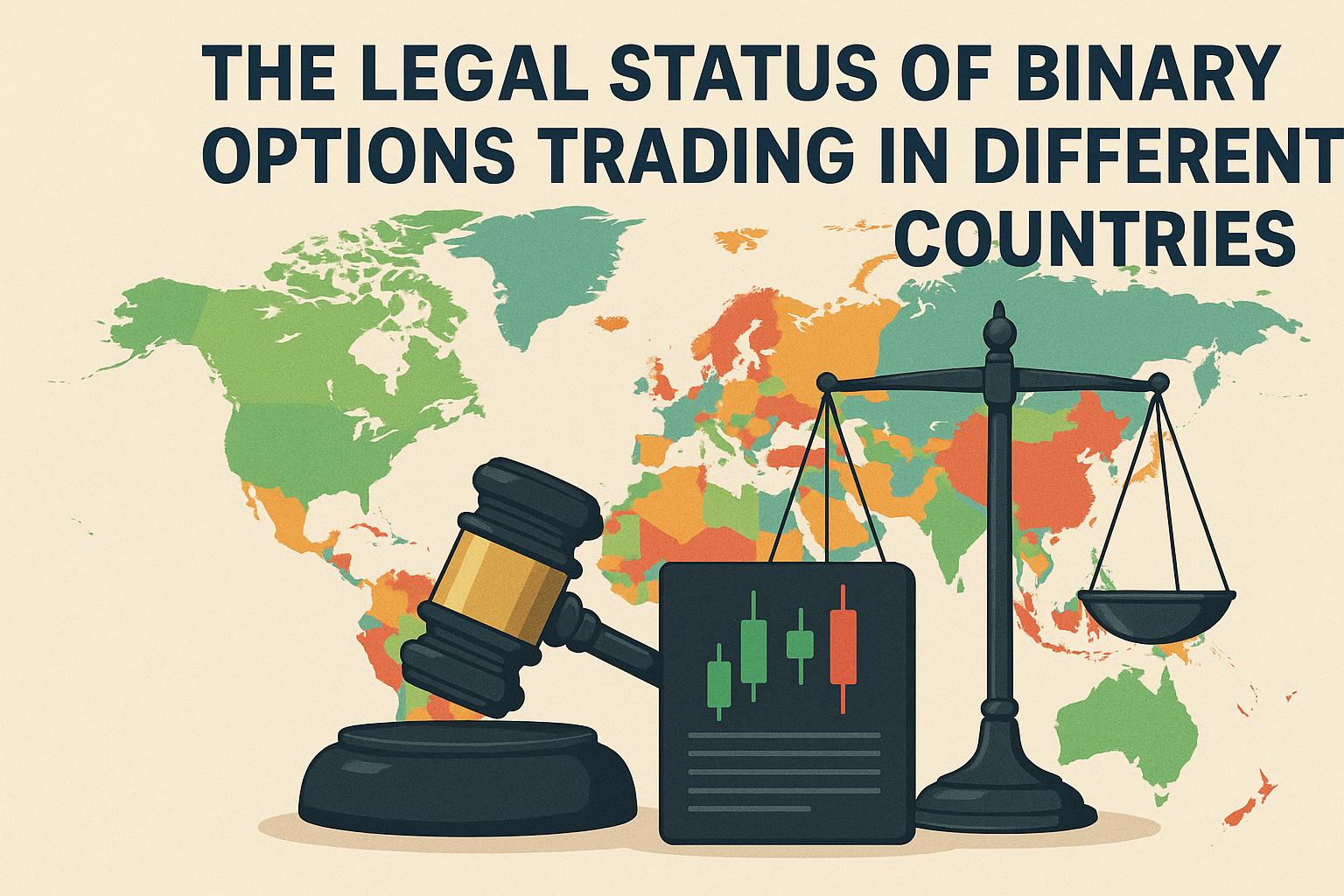The Legal Status of Binary Options Trading
Binary options trading has emerged as a popular form of financial speculation that offers the opportunity for substantial returns. Despite its popularity, the legal landscape surrounding binary options trading is complex and varies globally. Regulatory frameworks, investor protection measures, and an overarching emphasis on market integrity play a crucial role in shaping these legal statuses. This document explores the varying legal status of binary options trading across multiple regions, offering insights into the intricacies and evolutions of regulations in different markets.
United States
In the United States, the regulation of binary options trading is particularly stringent. The market is stringently overseen by two principal bodies: the Commodity Futures Trading Commission (CFTC) and the U.S. Securities and Exchange Commission (SEC). Such a regulatory framework is designed to protect investors from fraudulent endeavors that could potentially arise within the market. Only a select few exchanges, including the North American Derivatives Exchange (Nadex), are licensed to offer binary options trading in the U.S. Consequently, binary options brokers that are based outside the United States are typically barred from soliciting U.S. residents. This restriction signifies a commitment to protecting the interests of American investors and maintaining market integrity by preventing fraudulent or high-risk trading practices domestically.
European Union
Within the European Union, the legal dynamics of binary options trading have undergone significant transformations over recent years. The regulatory landscape is primarily influenced by the European Securities and Markets Authority (ESMA). ESMA has implemented stringent restrictions on the marketing, distribution, and sale of binary options to retail investors, effectively constraining their availability. The underlying intent of these measures is to safeguard investors from the innate risks posed by high-leverage and unclear trading conditions that are often associated with binary options. While certain member states continue to permit binary options trading under strict conditions, others have banned the practice outright, thus reflecting the EU’s varied regulatory stance oriented towards investor protection and market fairness.
United Kingdom
In the United Kingdom, the regulatory stance is relatively clear-cut. A comprehensive ban on the sale of binary options to retail consumers has been implemented by the Financial Conduct Authority (FCA) since April 2019. This measure underscores a proactive approach aimed at mitigating the potential for financial fraud and protecting British consumers from engaging in high-risk investment ventures. Such a decisive move reaffirms the UK’s commitment to maintaining financial stability and shielding retail investors from potentially perilous trading options.
Australia
Australia’s journey with the regulation of binary options trading mirrors global concerns related to the practice. For a period, binary options trading was permissible under the oversight of the Australian Securities and Investments Commission (ASIC). However, echoing global trends, ASIC enforced a ban on binary options trading for retail clients effective from May 2021. This prohibition is part of wider consumer protection initiatives aimed at curtailing risky speculative practices that could adversely affect retail consumers. It reflects Australia’s regulatory foresight in prioritizing consumer welfare amidst evolving trading paradigms.
Canada
In Canada, the regulation concerning binary options trading is definitive and unambiguous. It is outright forbidden. The Canadian Securities Administrators (CSA) have been proactive in issuing warnings to the public about the risks associated with binary options trading. By instituting a comprehensive ban on the sale of binary options to retail investors across all Canadian provinces, the CSA seeks to dismantle fraudulent activities and shield investors from substantial losses. This categorical stance signifies Canada’s commitment to enforcing rigorous investor protection standards and upholding market integrity through stringent regulatory measures.
Asia and Middle East
The legal status of binary options trading within Asia and the Middle East is heterogeneous and largely contingent upon each country’s regulatory ethos. In Japan, for instance, binary options trading is meticulously regulated by the Financial Services Agency with enforceable guidelines designed to ensure transparency and secure investor interests. Conversely, countries like Israel have chosen to outlaw binary options trading entirely. This prohibition arises from burgeoning concerns over significant fraudulent activities associated with binary options trading. Such varying regulatory stances within the region speak volumes about the broader regulatory narratives that oscillate between stringent oversight and outright prohibitions directed towards safeguarding investor interests.
Conclusion
Evaluating and comprehending the legal status of binary options trading across distinct geographical entities is crucial for both traders and brokers. The observed variations in regulation highlight the importance of conducting well-rounded research and adhering to jurisdictional laws. Given the potential implications of non-compliance, traders and brokers must remain vigilant and prioritize engagement with regulated trading platforms. By doing so, they minimize risks and align with lawful practices that foster a secure trading environment. Therefore, adhering to the dichotomy of stringent rules and outright bans present globally is quintessential for ensuring not only compliance but also the longevity and sustainability of trading ventures. As such, potential investors are urged to exercise due diligence, maintain an informed perspective on regulatory developments, and make conscious decisions that align with best practices and regulatory guidelines within their operational regions.
This article was last updated on: September 15, 2025
